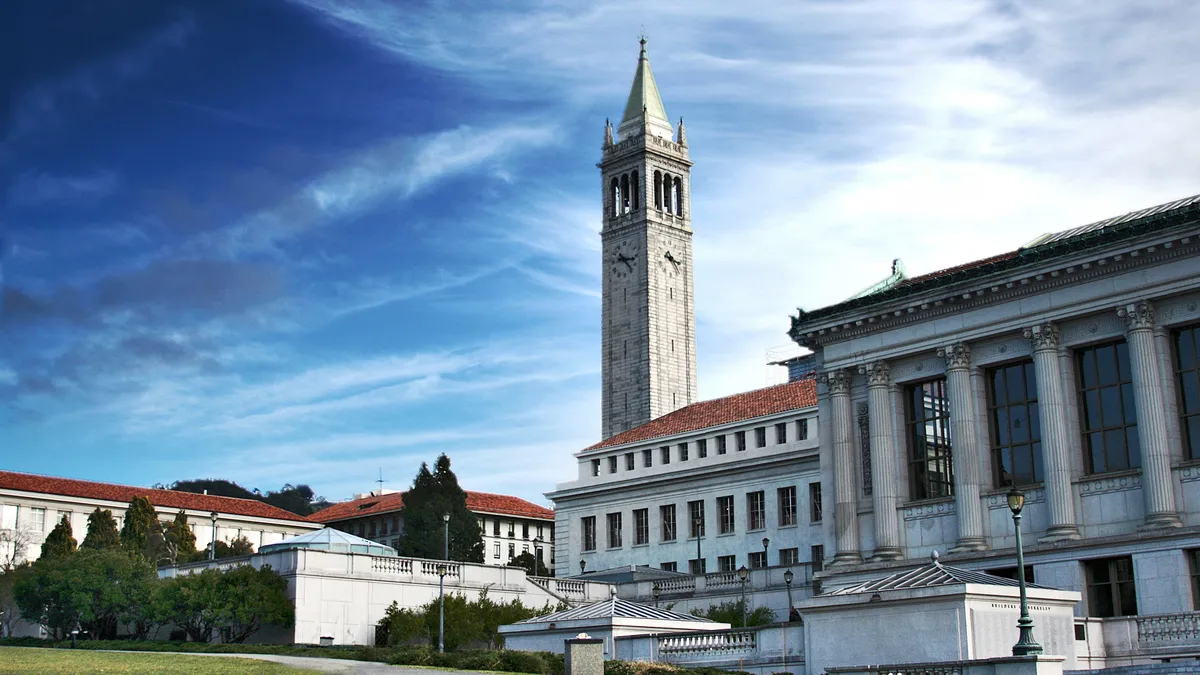California voters will have the chance to reinstate affirmative action in admissions to the state's public colleges this November, a move experts say is all the more likely as protests over systemic racial injustices roil the U.S.
Despite California being one of the most politically progressive states in the country, and home to some of the most influential higher education systems, it is among only eight states where race-conscious admissions policies are illegal. Experts predict if the state's residents embrace affirmative action, it will spark nationwide conversation around prejudice in college recruitment and enrollment. However, it may not markedly change the racial makeup of the California campuses' student bodies.
"There's going to have to be some serious mindset work … to help professionals in admissions change their mindsets about Black students and their deservingness and readiness to succeed," said Shaun Harper, founder and executive director of the Race and Equity Center at the University of Southern California.
The California Legislature this week passed a ballot question to be considered in the Nov. 3 election. Voters will decide whether to overturn Proposition 209, the 1996 measure barring government agencies from factoring race, sex and ethnicity in public education, employment and contracting. Arizona, Florida, Michigan, Nebraska, New Hampshire and Oklahoma also prohibit such policies.
California's ban on affirmative action was once the center of a heated political drama that spilled into the national landscape. Two academics, Glynn Custred and Tom Wood, disgruntled by the state's shifting demographics in the early 1990s, wrote up a constitutional amendment forbidding public entities from considering race and ethnicity in employment and public education. The concept became popular with the state's Republican party and its GOP governor, Pete Wilson, who latched onto it as a way to "ride the issue" to the Republican presidential nomination, the Los Angeles Times reported at the time.
Wilson's bid for the nomination failed, but the state still became the first in the country to reject race-conscious practices. The University of California (UC) System, whose governing board recently endorsed ending Proposition 209, saw a steep drop in the number of underrepresented students on its nine campuses — from 20% of admitted students in 1995 to 15% by 1998. UC refers to underserved students as American Indian, Black and Hispanic/Latino.
Proponents of reviving affirmative action in the state have said doing so will correct the inequities that still linger, particularly in college admissions. UC attempted to boost campus diversity within the bounds of the law by guaranteeing admission to one of the system's campuses to the top 9% of students at participating state high schools. But the UC student population still doesn't match the racial composition of the state.
California State University System Chancellor Timothy White also supports the measure.
Lobbying from Asian-American groups halted lawmakers' attempt to undo the affirmative action ban six years ago. Critics were concerned about a potential decline in the number of admitted Asian students, and it remains an argument against repealing Proposition 209 this year. But the measure seems more likely to pass this time around, experts say.
The tenor of the country is vastly different from when Washington state last year narrowly voted down allowing race-conscious policies in the public sector once again, said Art Coleman, co-founder and managing partner of the Education Counsel, a consulting firm, and a longtime defender of affirmative action in higher ed. To make the ballot, the measure needed the support of two-thirds of California's Legislature. And recognition of systemic racism has sharpened following the death of George Floyd, a 46-year-old black man, in police custody, which spawned nationwide demonstrations.
California's move would just make sense, Coleman said. Decades of court precedent have backed race-conscious admissions policies. Though, as in Washington's case, the public might have a skewed view of what affirmative action means, he added. U.S. Supreme Court rulings have barred colleges from fulfilling racial quotas, but uninformed voters might incorrectly believe that to be the definition of affirmative action.
"Affirmative action in higher ed admissions isn't a check-the-box activity, it's a very highly contextualized review of students," Coleman said.
Democratic Assemblymember Shirley Weber, who authored the constitutional amendment, also known as ACA 5, told EdSource the restoration of affirmative action would allow K-12 schools and colleges to start helping underrepresented students, such as Black middle and high school students, with tutoring and other programs even before they enter college. Weber told the publication that a particular set of affirmative action rules wouldn't be mandated.
But Harper, of USC's Race and Equity Center, said the law never blocked higher ed systems from helping Black students in the same way they assist honors students, for instance.
California's colleges could have created more programs to help ease the academic transition for disadvantaged students, but they failed to do so, Harper argued. He said he was especially unimpressed with the state's prestigious campuses, UC Berkeley and UCLA, for not making more attempts to rectify inequities. A memo from the office of UC President Janet Napolitano earlier this month points out that these two campuses lost a significant portion of their underrepresented students in the late 1990s.
UC did not respond to a request for comment on Harper's criticism Thursday afternoon.
"If this passes, and there's some legal permission granted to act in more race-salient ways, I'm interested what their next excuse is," Harper said.


















